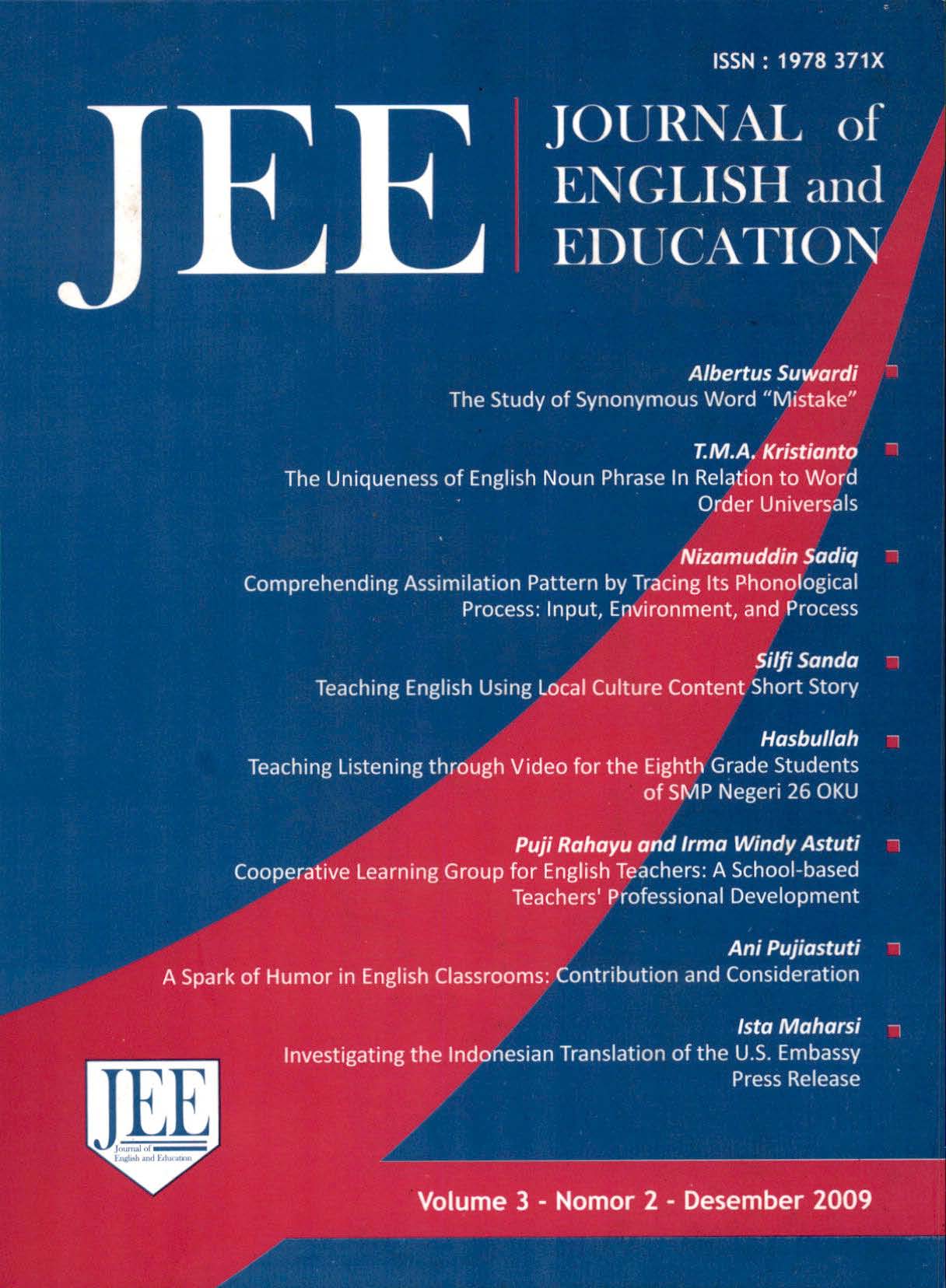Main Article Content
Abstract
Translating formal text that may contain social, political, and crucial issues that involve many parties and possibly pose reactions across countries does not seem to be a simple task to complete. Due to diverse reactions of readers from different languages, a translator needs to be very careful to transfer meanings and the emotion within a text. Translation strategies, language use, types of text, genre, discourse and values are urgent issues to reconsider during the translation process. This paper investigates the translation strategies implemented in the Indonesian translation of the U.S. Embassy Press Release in response to Newsweek's Report on Alleged Desecration of the Holy Qur'an from the point of views of text, genre, and discourse as proposed by Hatim and Munday. In addition, several alternative translations are also offered to show different impacts of a translated text. Despite many translation methods that are used in doing the translation process, a text still bear its own genre, discourse and therefore stands in its own identity while at the same time the target text should keep voicing at least similar values and bring about similar impacts on readers.
Article Details
Copyright (c) 2016 JEE, Journal of English and Education

This work is licensed under a Creative Commons Attribution-ShareAlike 4.0 International License.
Authors who publish with this journal agree to the following terms:
- Authors retain copyright and grant the journal right of first publication with the work simultaneously licensed under a Creative Commons Attribution-ShareAlike 4.0 International License that allows others to share the work with an acknowledgment of the work's authorship and initial publication in this journal.
- Authors are able to enter into separate, additional contractual arrangements for the non-exclusive distribution of the journal's published version of the work (e.g., post it to an institutional repository or publish it in a book), with an acknowledgment of its initial publication in this journal.
- Authors are permitted and encouraged to post their work online (e.g., in institutional repositories or on their website) prior to and during the submission process, as it can lead to productive exchanges, as well as earlier and greater citation of published work (See The Effect of Open Access).

